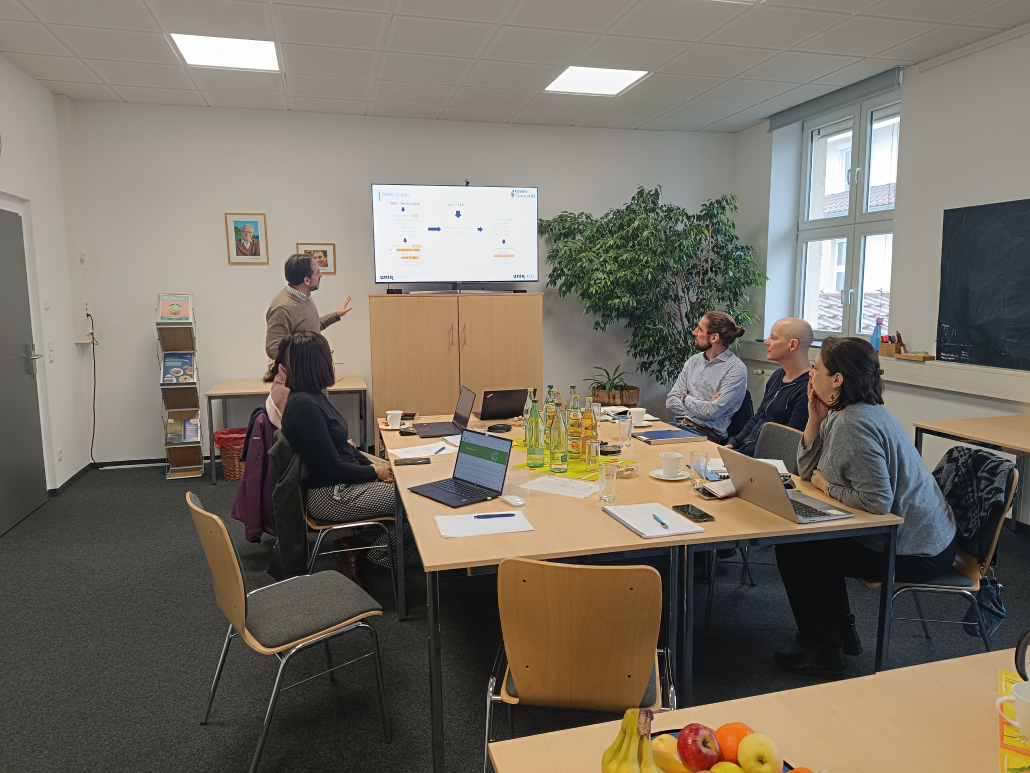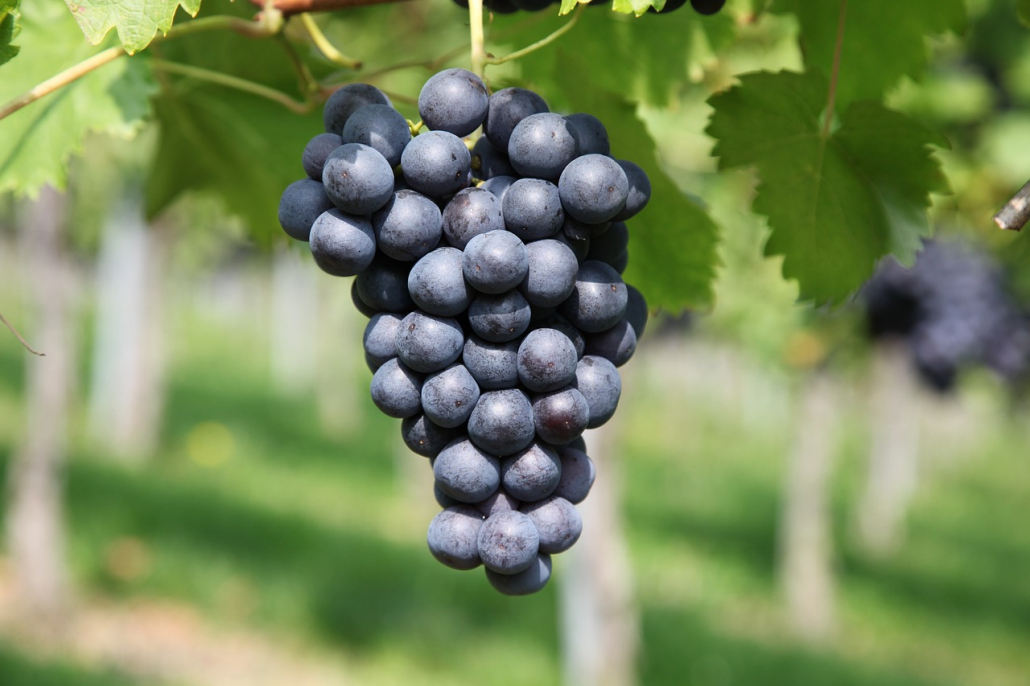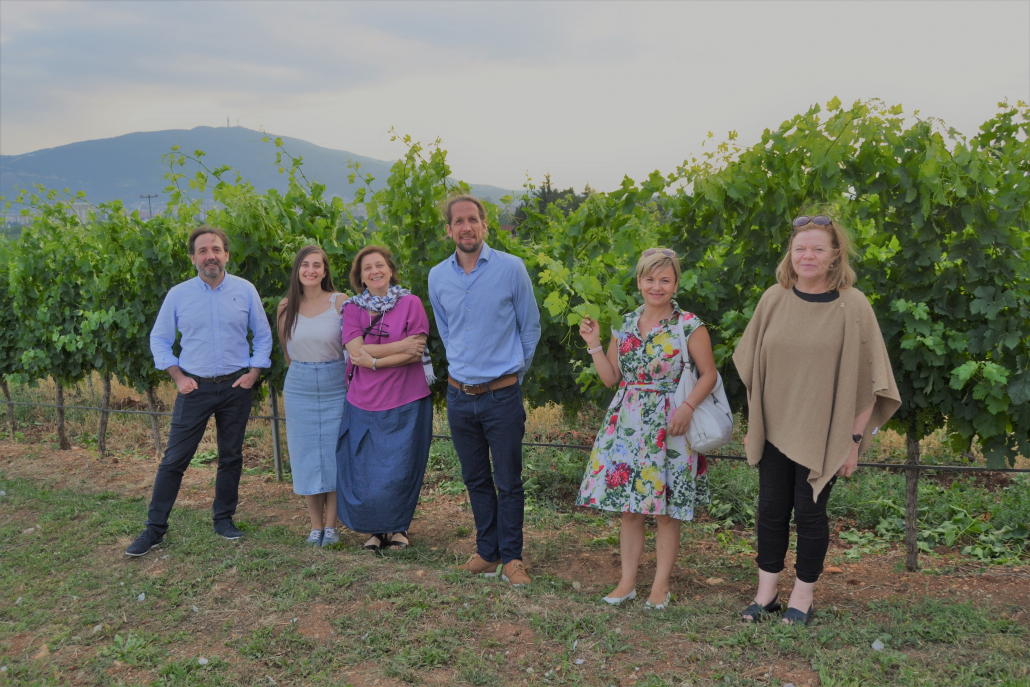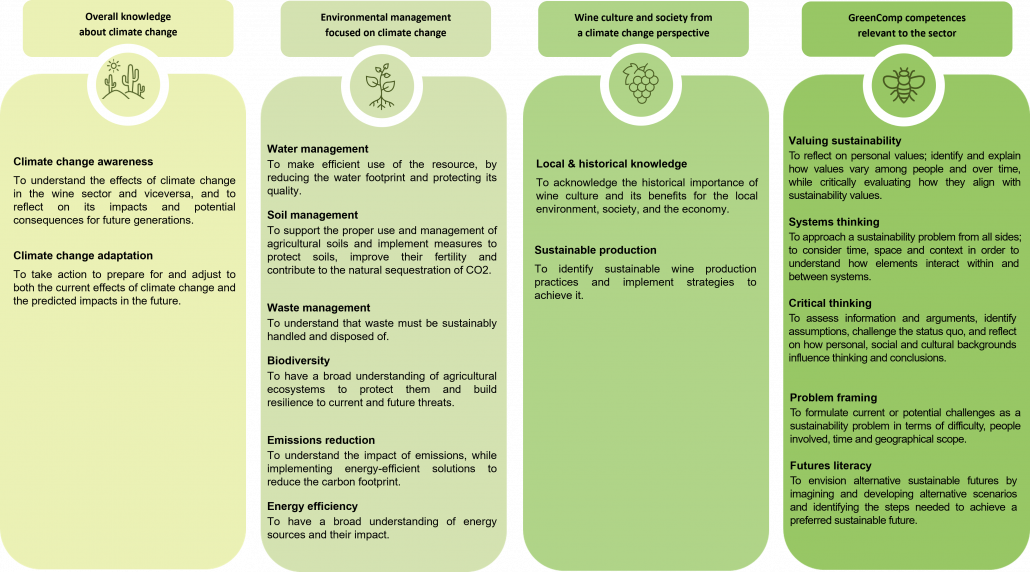The final event of the green vineyards project will take place on Wednesday morning, 26th June 2024.
The event, which will take place face-to -face in Madrid, will be held under the title «Technology, Training and Wine: United against Climate Change» and will be organised by the Spanish Wine Federation (Federacion Española del Vino), an active partner of the project.
Those attending the conference will have the opportunity to learn about two fundamental tools that the sector is using to face the challenges of climate change, such as the use of innovative technology and the training of workers in sustainability.
To this end, a round table will be organized, where experts in these fields will share their experience with the attendees.
You can register for the conference here,






